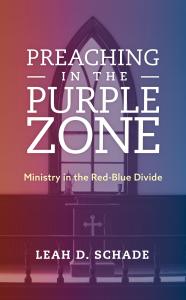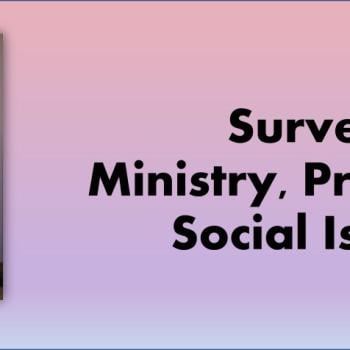Applying the ‘Dialogical Lens’ to the Parable of the Rich Fool (Luke 12:13-21)

In a survey of 1200 mainline Protestant preachers I conducted in 2017, I asked what social issues they were willing to address in their sermons.
I listed 38 topics for them to choose from, and the results turned up an interesting paradox.
“Poverty” was the number one issue preachers said they had addressed in their sermons (checked off by 83% of respondents). At the same time, they listed “Critique of capitalism” as one of the topics they most actively avoid in their preaching. It was the third most avoided topic, behind “women’s reproductive health” and “fossil fuel extraction.”
This raises a question: how can we talk about poverty if we avoid talking about the economic system in which poverty exists? To be clear, I’m not necessarily saying that capitalism causes poverty (although we could make the case for that claim). Rather, I’m simply noting that there seems to be a gap in the church between talking about the problem of poverty and talking about the conditions in which poverty occurs. On an even more basic level, sermons about money, finances, and the distribution of wealth are challenging for preachers and congregations alike.
Yet the Bible talks a great deal about money and possessions.
The Parable of the Rich Fool in Luke 12:13-21 is just one example. Is there a way to approach this text that honestly names the issues around wealth, greed, and family tensions while also rooting deeply in a conversation about who God is, how we live in community together, and how our faith manifests within these issues? [For a deep dive on the Bible and money, check out Walter Breuggemann’s book Money and Possessions.]

In my book Preaching in the Purple Zone: Ministry in the Red-Blue Divide (Rowman & Littlefield, 2019), I suggest using a “dialogical lens” for reading and interpreting scripture. [You can read about the 6 Steps for Using a Dialogical Lens here.] Such a lens can open up doors for deeper reflection and discussion after the sermon is over. Let’s see how we might approach the Parable of the Rich Fool using a “dialogical lens.” As a quick review, here are the 6 steps:
Six Steps for Using the Dialogical Lens
- Point out the dialogical aspects of the passage.
- Determine what’s at stake.
- Identify the values.
- Explain how God, Jesus, and/or the Holy Spirit is active.
- Recognize what the dialogue is teaching us.
- Suggest possible next steps.
The Parable of the Rich Fool in Luke 12:13-21 is a great text to work with using the dialogical lens because it contains layers of conversation between Jesus and his listeners. And these conversations have ramifications for us today in our personal lives, congregations, and society as a whole.
Here are some suggestions and questions to consider about the Parable of the Rich Fool as we take these six steps in turn:
1. Point out the dialogical aspects of the passage.
Think about who is in the vicinity of the discussion Jesus is having with the man and the crowd. Back up and start reading at Luke 11:37 all the way through to this passage – you’ll see who else is listening to this dialogue Jesus is having. (Hint: This encounter with the man asking Jesus to intervene in a family dispute about inheritance is taking place within earshot of two groups – “the crowd” and the Pharisees. How are each of them impacted by what Jesus has to say?)
2. Determine what’s at stake.
Jesus is hitting some “hot topics” in this passage, including wealth distribution, sibling rivalry and family conflict, family inheritance, and property ownership. Which of these are impacting the lives of your congregation and community? And which are the ones that your congregation may be hesitant to discuss? What may be the reasons for this hesitation?
3. Identify the values.
On a personal level, in what ways does money symbolize what we value? Is it independence and self-reliance? The ability to exercise personal agency? The capacity to make choices and form one’s identity? Is it a manifestation of our sense of security? What does it mean to have “enough”?
Yet, this passage is addressing not just personal greed, but economic inequality and injustice. In the larger context of Jesus’ discourse, we see that the hoarding of wealth by the rich has a detrimental effect on the whole community. How do you see this reality manifesting in your own community? In our country? Globally?
4. Explain how God, Jesus, and/or the Holy Spirit is active.
What is Jesus modeling for us in his engagement on these topics? What can we learn about how the issues of greed, economic inequality, wealth distribution, and family conflicts impact our relationship with God? With each other? Within our local community? In relation to the national policy discussions that are affecting us all?
5. Recognize what the dialogue is teaching us.
What does it mean to be the church as we’re wrestling with these questions – questions that the Bible is asking us about money and possessions? Can we even have these conversations in the church? If not, what makes us hesitant? If we were to talk about wealth distribution in our families and the larger society, how might we do so in an invitational rather than divisive way? What might be the benefits of having a these difficult – but necessary – conversations?
6. Suggest possible next steps.
Maybe our church could host a deliberative dialogue on some aspect of money and possessions. The National Issues Forum Institute has several issue guides to help frame these conversations in a nonpartisan way. Or perhaps our church can offer a book study on a volume such as The Soul of Money by Lynne Twist.
Maybe we want to bring in a speaker to talk about financial planning from a faith perspective. Perhaps we offer some educational events for families such as how to practice generosity while also saving and paying the bills. Or maybe we can start a support group for people entering into the “divestment” stage of life and what that means for their faith journey.
In terms of addressing systemic issues, perhaps we could consider supporting the Poor People’s Campaign, Bread for the World, or a similar organization that addresses economic issues at a systemic level. We could also inquire of our denominational leaders to see what resources are available as well.
As you can see, there are any number of directions a sermon could take when using the dialogical lens, depending on your context.
In the next post we’ll look at two different sermon approaches that utilize the dialogical lens for the Parable of the Rich Fool. Read: Owning Stuff or Stuff Owning Us? The Rich Fool in Luke Chapter 12

Leah D. Schade is the Assistant Professor of Preaching and Worship at Lexington Theological Seminary in Kentucky. She is the author of Preaching in the Purple Zone: Ministry in the Red-Blue Divide (Rowman & Littlefield, 2019) and Creation-Crisis Preaching: Ecology, Theology, and the Pulpit (Chalice Press, 2015).
Twitter: @LeahSchade
Facebook: https://www.facebook.com/LeahDSchade/
Read more:
Using a ‘Dialogical Lens’ for Scripture and Preaching
Preaching Across Divides: Purple Zone Strategies for Pulpit and Public Square













